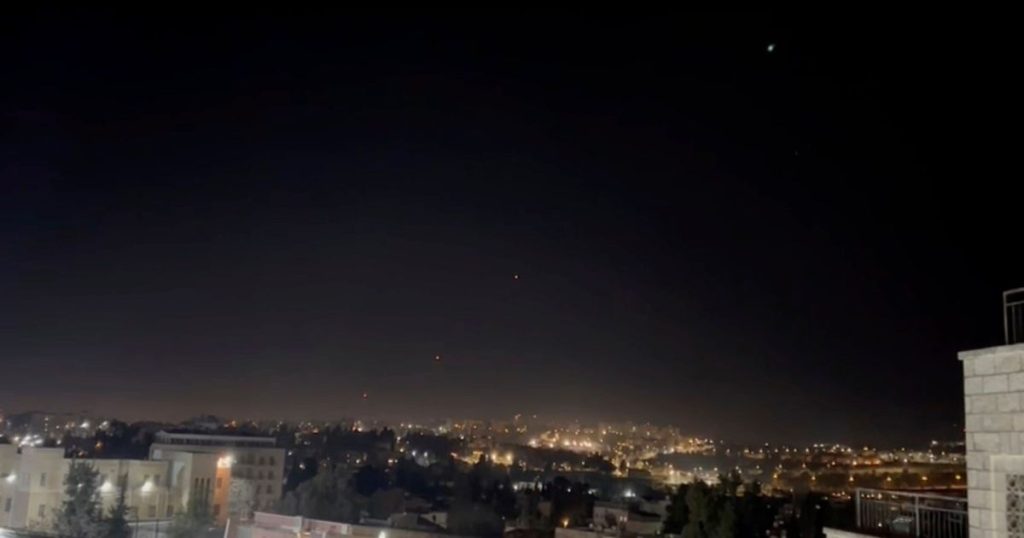Israel successfully intercepted 99% of the more than 300 drones and missiles launched towards its territory by Iran in an unprecedented attack. President Joe Biden announced plans to convene a meeting of the Group of Seven advanced democracies to coordinate a united diplomatic response to Iran’s actions, signaling a desire to avoid broader military conflict. Iran’s attack was in response to a strike on an Iranian consular building in Syria that killed two Iranian generals, further escalating tensions between the two countries with a long history of enmity.
Despite the decades-long shadow war between Israel and Iran, Sunday’s assault marked the first time Iran launched a direct military assault on Israel. Israel’s advanced air defense network, supported by the United States, played a crucial role in thwarting the attack, preventing potentially devastating consequences at a time when Israel is already facing conflicts with Hamas in Gaza and Hezbollah in Lebanon. Israeli officials lauded the successful defense while reiterating their commitment to protecting their citizens.
Following the attack, Israeli Prime Minister Benjamin Netanyahu and Defense Minister Yoav Gallant praised the response to the aerial assault and expressed gratitude for the assistance received from the U.S. and other countries. Iran’s President Ebrahim Raisi claimed that Iran had taught Israel a lesson and warned against further adventures against the interests of Iran, emphasizing that any such actions would be met with a regretful response from Iran. Despite the intense attacks, both Israel and Iran have indicated a desire to avoid further military escalation.
Israel’s successful defense against the Iranian onslaught stands in stark contrast to its struggles during Hamas’ attack in October. While the outcome may help restore Israel’s image following that defeat, future actions will be closely scrutinized by regional and Western powers. President Biden praised Israel’s defense capabilities and urged allies to develop a unified response, emphasizing the U.S.’s commitment to not participating in any offensive actions against Iran. The U.S. issued warnings to Tehran to prevent further escalation of the conflict, underscoring the need for diplomatic solutions.
Negotiations for a ceasefire in the Gaza conflict, which has caused widespread devastation and casualties, experienced a setback after Hamas rejected a deal that did not include a commitment from Israel to withdraw from the Gaza Strip. Hamas continues to hold over 100 hostages in exchange for the release of Palestinian prisoners from Israeli jails. Against the backdrop of these negotiations, Iran’s attack against Israel was met with support from Hamas, further complicating the situation in the region. The G7 countries are set to discuss Iran’s strikes against Israel, highlighting the international attention on the conflict and the need for de-escalation.


